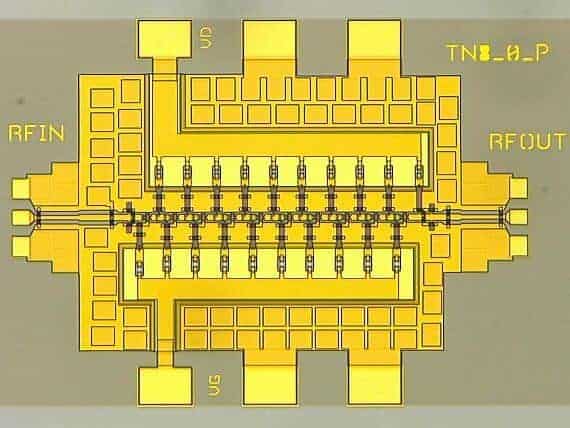Following three years of extensive research, Hebrew University of Jerusalem (HU) physicist Dr. Uriel Levy and his team have created technology that will enable our computers–and all optic communication devices–to run 100 times faster through terahertz microchips.
Until now, two major challenges stood in the way of creating the terahertz microchip: overheating and scalability.
However, in a paper published this week in Laser and Photonics Review, Dr. Levy, head of HU’s Nano-Opto Group and HU emeritus professor Joseph Shappir have shown proof of concept for an optic technology that integrates the speed of optic (light) communications with the reliability–and manufacturing scalability–of electronics.
Optic communications encompass all technologies that use light and transmit through fiber optic cables, such as the internet, email, text messages, phone calls, the cloud and data centers, among others. Optic communications are super fast but in microchips they become unreliable and difficult to replicate in large quanitites.
Now, by using a Metal-Oxide-Nitride-Oxide-Silicon (MONOS) structure, Levy and his team have come up with a new integrated circuit that uses flash memory technology–the kind used in flash drives and discs-on-key–in microchips. If successful, this technology will enable standard 8-16 gigahertz computers to run 100 times faster and will bring all optic devices closer to the holy grail of communications: the terahertz chip.
As Dr. Uriel Levy shared, “this discovery could help fill the ‘THz gap’ and create new and more powerful wireless devices that could transmit data at significantly higher speeds than currently possible. In the world of hi-tech advances, this is game-changing technology,”
Meir Grajower, the leading HU PhD student on the project, added, “It will now be possible to manufacture any optical device with the precision and cost-effectiveness of flash technology.”
If our reporting has informed or inspired you, please consider making a donation. Every contribution, no matter the size, empowers us to continue delivering accurate, engaging, and trustworthy science and medical news. Independent journalism requires time, effort, and resources—your support ensures we can keep uncovering the stories that matter most to you.
Join us in making knowledge accessible and impactful. Thank you for standing with us!

